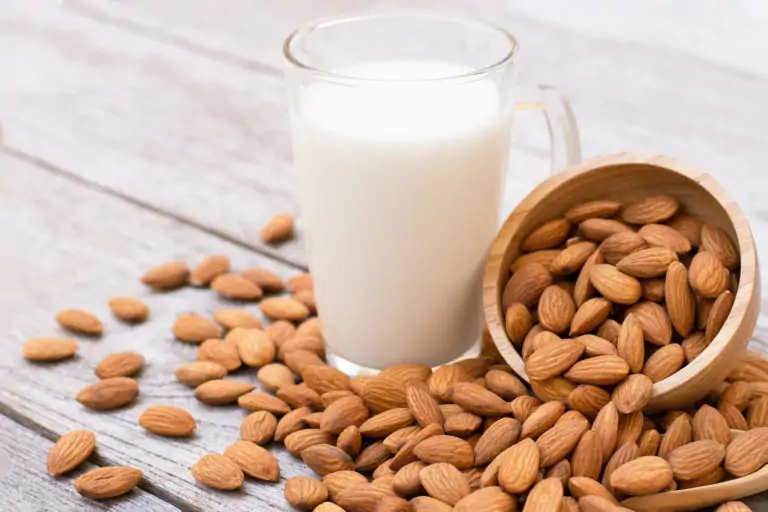The plant-based milk market is expected to reach $38.90 billion and grow at a rate of 15% in the forecast period of 2020 to 2027. There is a shift in consumer preference for plant-based foods daily diets and this is expected to drive the continued growth of the plant-based milk market. Despite this, conventional meat and dairy consumption have risen during the pandemic driven by increased home working. Recent statistics suggest there is considerable overlap, with 68% of people who drink plant-based milks also consuming cow and other animal milks.
So as the economy recovers what are the prospects for the plant-based dairy sector?
Plant-based milks are made from almond, hemp, coconut, rice, cereals, nuts, and soy plants which offer consumers several health benefits compared to dairy milk. They are widely used in applications such as beverages, milk, cheese, and ice cream and provide nutrients such as protein, fat, vitamins, and carbohydrates.
Positive perceptions
Plant-based milks are often seen as environmentally friendly products as their production emits fewer greenhouse gases and demands less land compared to the traditional dairy industry. A growing number of consumers opt for plant-based milk substitutes for medical reasons or as a lifestyle choice. Medical reasons can include lactose intolerance, which has a worldwide prevalence of 75%, and cow’s milk allergy.
However, the sector is not immune from controversy. Some specific raw materials are associated with environmental problems such as water stress (almonds) , ecotoxicity and bee mortality, deforestation (soya) and mineral nitrate leaching. There are specific concerns over the environmental impact of almond milk. More than 80% of the world’s almond crop is grown in California, which has been in severe drought for most of this decade.
To supply almonds, farmers are ripping up relatively biodiverse citrus groves creating a monoculture fed by deep-water wells that threatens water supplies.
Complexities around dietary benefits
Dairy products are rich in calcium, iodine, and protein, and fortified with vitamin D, all of which are essential to a healthy diet. While not exclusively provided by dairy products, dairy is a key source of these nutrients, with dairy providing 38% of iodine intake in adults.
Cow’s milk has a higher nutritional value than most plant-based milks. Although perceived to be healthy, the plant-based products available vary remarkably in their nutritional profiles; most have low protein, mineral, and vitamin content and the quality of the protein is less than cow’s milk. If these products are portrayed as substitutes for cow’s milk in the diets of young children, then protein content and bioavailability of the nutritional additives need to be considered by manufacturers and consumers. An Australian study found that plant milks tended to have a lower sugar content than cow’s milk but only one third contained similar calcium levels.
Off-flavours are another reported issue e.g., a beany flavour from soy, bitterness from seeds and poor texture characteristics. To overcome these issues plant-based milk manufacturers are working to add functional ingredients and more protein. For example, in 2020 Califia Farms launched Protein Oat in the US, which uses pea protein and sunflower seeds to make a product that is comparable to the protein value of cow’s milk.
A market that continues to grow
Despite these issues, consumers retain a positive perception of plant-based milks in terms of health, and this will no doubt continue to drive consumption. Recent research puts the rising consumption of alt-milks down to the healthy halo effect around nuts, the popularity of exclusion diets and the buzz about plant proteins.
More than half of Americans who purchase plant-based milk say they do so because it is healthier than cow’s milk (58%), tastes better than cow’s milk (54%), is better for the environment (53%), and/or reduces exposure to antibiotics and hormones (53%).
Lactose-free is another important attribute for plant-based milk consumers. The most successful plant-based milk brands to date have stressed a move away from the traditional and combined innovation with approachable activism. They have captured this increasing awareness of veganism, as well as rising concerns about nutrition and issues such as the environment.
Increased supply will continue to drive demand with manufacturers launching a greater range of products, from a wider range of ingredients.
Supermarkets and coffee shops are now offering a range of milk alternatives as standard in addition to more practical considerations, such as increased versatility and longer shelf life. There is a growing range of plant-based milks coming onto the market with different ingredients, with supermarkets and coffee shops now offering a range of milk alternatives as standard.
Food complementing modern demands
Many plant-based milks are shelf-stable, meaning they do not need refrigeration until opened. These benefits have been apparent during the Covid-19 pandemic. As government advice to stay home and long queues in supermarkets may increase consumer interest in shelf-stable products, the closure of restaurants, schools and businesses have led to substantial wastage of fresh foods such as milk.
As Covid restrictions ease and the global economy restarts, production and consumption of plant-based milks are likely to continue to grow, driven by environmental and health concerns, as well as other factors such as convenient storage and a growing range of product lines.
As the global economy rebounds, the plant-based dairy sector stands poised for continued growth, bolstered by shifting consumer preferences towards more sustainable and health-conscious choices. The allure of plant-based milks is indicative of a broader shift toward alternative proteins and novel ingredients.
At Farrelly Mitchell, our agrifood specialists stay atop of the latest in consumer, market and regulatory trends. Our market intelligence experts can collate and convert large amounts of market data into digestible and actionable reports that guide clients toward stronger market positioning and a commercial advantage. To learn more about our services, contact our team today.














